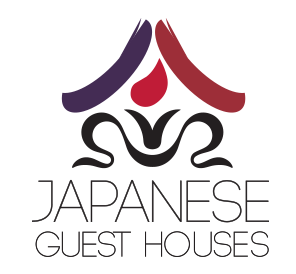Hot springs have a very long history in Japan, and they are an intimate part of Japanese culture. There are over 3,000 "onsen" ,or hot springs, in Japan. Many can be found at the ryokans available on Japanese Guest Houses.
Popular Destinations
Kyushu
Hokkaido
Kansai
Tohoku
Shikoku
Buddhist Temple (shukubo) Overnight in Koyasan Staying at a Shukubo (Buddhist Temple) in Koyasan is a unique experience. D. Paget tells us more about his Buddhist Temple overnight in Koyasan below. Shuffling in our stocking feet at 6:30 a.m. along the dark wooden corridor of the temple from our room, we headed to the prayer hall. The other overnight guests, a Japanese group, we're doing the sa
Welcome to the Fukuchi-in. This is a "shukubo" or Buddhist Temple (see definition of ryokan styles below) for guests who wish to stay on Mount Koya. This large, beautiful temple has 70 Japanese-style rooms and both indoor and outdoor baths for the guests. Fukuchi-in serves "shojin" cuisine which is traditional Buddhist vegetarian cuisine. Check in time is after 3:00pm, and check out time is befor
Welcome to Hoon-in. This traditional Buddhist Temple has a very warm and cozy atmosphere, and it is recommended for guests seeking a family-style temple. The hosts at Hoon-in are very friendly, and will go out of their way to make you feel at home. There are 16 Japanese-style guest rooms in their "Honkan" and "Bekkan". None of the guest rooms have private baths or toilets. Hoon-in provides shared
Welcome to Rengejo-in. This traditional Buddhist Temple, or Shukubo in Japanese, is located near the Mount Koya cable car station. Rengejo-in has interesting temple architecture, a traditional Japanese garden. Rengejo-in provides shared baths for both women and men, and “shojin ryori” or Buddhist Monk vegetarian meals are served to the guests. Check-in time is after 3:00pm and check-out time i
Welcome to Shojoshin-in. This large traditional Buddhist Temple is one of the oldest temples on Mount Koya (Koyasan) - built 3 years before Kongobuji Temple. Shojoshin-in has Japanese style guest rooms as well as a "Hanare" (private guest residence which has a private bath and toilet), Japanese style gardens and a pond. Shojoshin-in provides shared baths for both women and men, and "shojin-ryori"
Welcome to Muryoko-in. This large traditional Buddhist Temple was originally built in the Heian period (794 to 1185). The name means 'immeasurable light' and it is dedicated to Amida. Muryoko-in has 30 Japanese style guest rooms all without private baths or toilets though there are 2 indoor public bath (one for women and one for men). Dinner and breakfast are “Shojin-Ryori” (Buddhist Monk vege
Welcome to Eko-in. A 1000 year-old Buddhist temple, Ekoin offers Japanese style guest rooms and one of them has a private bath and toilet. All of the guest rooms have a garden view. Guests are free to attend morning services and the Goma fire ritual. Guests can participate in meditation sessions from 16:30. Sessions can be translated in English and English brochures are available if there is no
Welcome to Saikan Dewa Sanzan Haguroyama. This Buddhist temple is located in Haguroyama and is part of the Three Mountains of Dewa. It's an historical building, originally called Kezouin, but was rebuilt in 1697. Saikan Dewa Sanzan Haguroyama is a wooden temple with sliding doors, so doors cannot be locked though this only adds to the charm. Adventurous guests reach the temple by climbing up 2,466
Welcome to Sowaka. This luxurious ryokan is located in the heart of Gion (Traditional district in Kyoto). Sowaka is a Sanskrit word meaning happiness or well-being. It is a word of blessing, often spoken at the end of the Buddhist sutras that echo through the innumerable temples of Kyoto. Once across the stone threshold, you are instantly transported to an oasis of calm. Relax in one of Sowakaâ€
Welcome to Gyokuzo-in. This Buddhist temple was first established about 1400 years ago. It is located on the east side of the Mt Ikoma, between Osaka and Nara. Japanese dishes featuring local specialities are served at the guest room or in the banquet hall. For dinner, guests can choose from a traditional multi-course meal or traditional vegetarian dishes. There is a morning prayer that starts aro
Hyogo-ken Chijitoroku Ryokogyo 3-609
(Hyogo Prefecture Travel Agent License Number 3-609)
10-5-401-1-(2) Sakae-machi, Kawanishi-shi, Hyogo-ken Japan
Part of the Rediscover Group of Travel Companies Rediscover Japan Co., Ltd. (Japanese Guest Houses)
Website Design & Marketing by: Douglas Marketing Group

